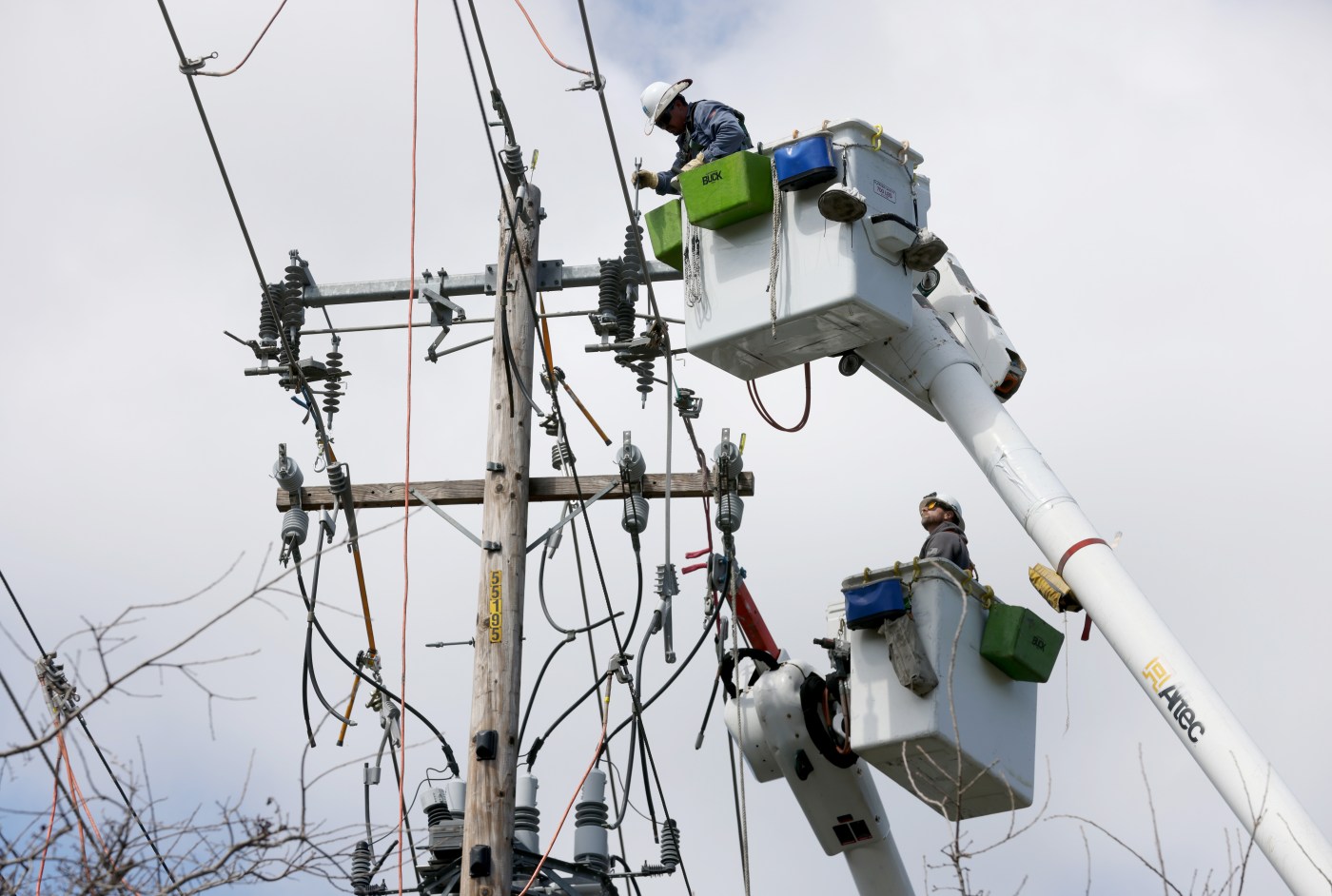Tensions are rising over a new monthly charge planned for California’s electricity bills, which are already the highest in the nation.
A new fixed monthly fee is scheduled to be adopted by California Public Utilities Commission (CPUC) in May, but a legislative battle is brewing to block it. The controversy at hand revolves around whether the payment structure change will harm or help low-income residents and the state’s clean energy goals.
The CPUC — which regulates the state’s major utility companies Pacific Gas and Electric Co., Southern California Edison, San Diego Gas and Electric Co — recently proposed adding a $24 fixed monthly fee to customers’ bills. The hike will not affect customers who get their power from LADWP, which operates independently of CPUC.
In return for the fee increase, the CPUC proposes reducing electricity rates by 5 to 7 cents per kilowatt hour. The CPUC says this new payment structure will result in lower monthly bills for low-income residents.
However, a coalition of more than 240 community organizations believe it will actually raise costs for millions of working-class Californians.
“The utilities are offering a really small one time drop in the amount that’s paid per unit of electricity, but it doesn’t cancel things out because people living in apartments or small homes use very little electricity. Even a $24 a month utility tax will wipe out any savings and cause their bills to go up,” said Ken Cook, president of the nonprofit Environmental Working Group, at a Tuesday, April 16 press conference where he spoke for a coalition of groups.
The Stop the Big Utility Tax Coalition is rallying behind AB 1999, which would repeal the 2022 law that enables the CPUC to impose this monthly fixed charge increase on electricity bills.
This bill was introduced by Assemblymember Jacqui Irwin, D-Thousand Oaks, in January to fight “skyrocketing” electricity rates.
“Our constituents have had enough and so have we,” she said in a press conference introducing the bill. “It’s time to put some reasoning back into how we charge for electricity in California.”
Over the last ten years PG&E rates have increased 127%, SCE rates have increased 91% and SDGE rates have increased 72%, she added.
The new $24 fee would be double the national average for a fixed electricity bill charge, the coalition reported.
The CPUC’s proposed monthly fee does include discounts for customers already enrolled in payment assistant programs like the California Alternate Rates for Energy and Family Electric Rate Assistance Program. However, the coalition says this only benefits a limited portion of California’s low and moderate income households.
A study commissioned by the coalition and completed by Flagstaff Research found that people living in apartments and small multi-family homes such as duplexes will see their yearly electricity bills increase by between $64 and $225 depending on how much energy they use.
Related Articles
Opinion: As PG&E bills soar, will California hold anyone accountable?
Letters: More housing | PG&E disingenuous | Prolonging war
Letters: Carbon fee | Bleeding Californians | Wasting water | Proud resident | Women’s rights | Punishing Trump
Rising executive pay at PG&E arrives at a time of soaring customer bills and fast-rising company profits
Letters: Easy recycling
At the same time, large energy users who live in big homes and tend to be wealthier than average will see bill decreases of between $338 and $474, the report found. This is because the $24 monthly fee is offset by the proposed decrease in electricity rates per kilowatt of usage.
The proposed fee change is also gaining attention and opposition from federal politicians. On March 25, 18 members of congress from California, including Reps. Ted Lieu, Brad Sherman and Katie Porter, sent a letter to the CPUC expressing their concerns.
“We worry that their proposed solution – to impose a highly monthly fixed charge regardless of how much electricity households use – is not the best tool to keep costs down and meet our climate goals,” stated the letter.
The environmental impact of the change is a key concern raised by Assemblymember Irwin and the coalition.
“By increasing bills on low energy users and decreasing bills on high energy users, the high fixed charge is going to incentivize energy waste and discourage energy conservation,” said Jenn Engstrom, state director of the California Public Interest Research Group. “It’s a reversal of our state’s long tradition of incentivizing behavior that benefits our society and helps us to hit our climate and energy goals.
AB 1999, the bill to revoke the fee increase, is currently awaiting discussion in the Assembly Utilities and Energy Committee. CPUC’s proposed fee schedule, meanwhile, is set to be heard at the commission’s May 9 Business Meeting.











